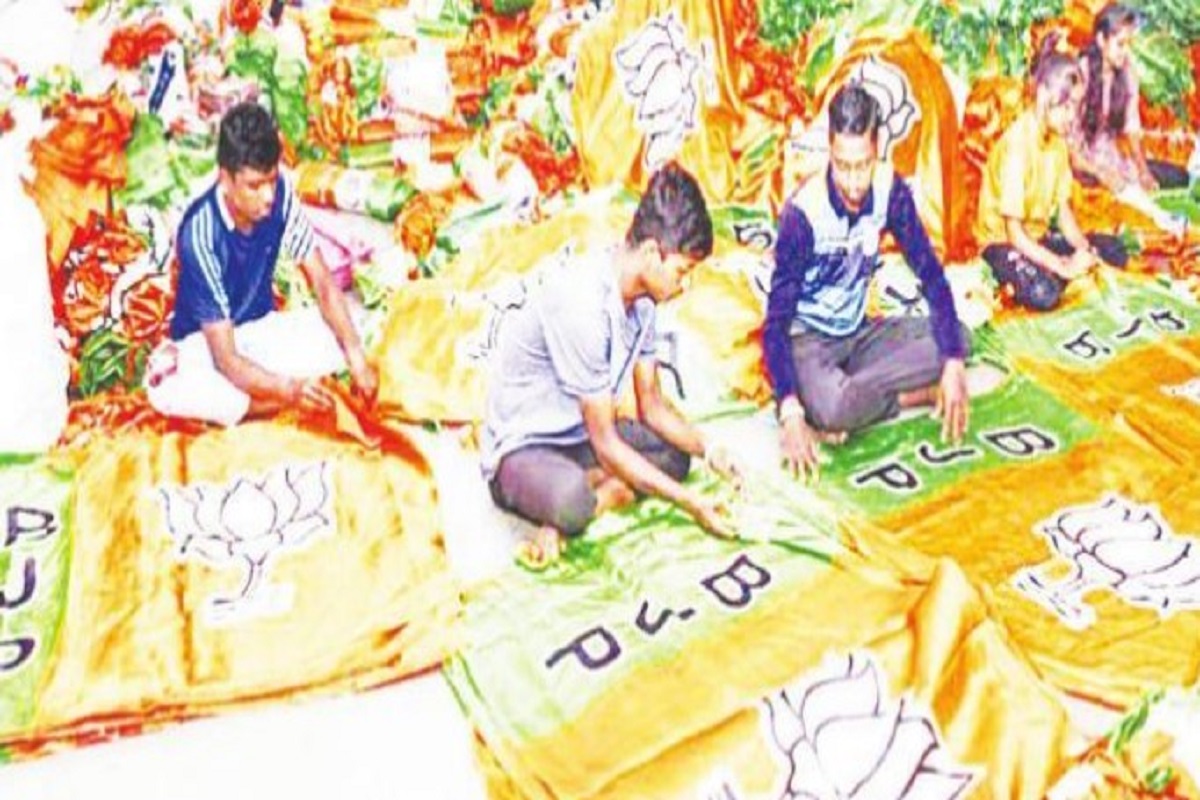After the Assembly polls in Himachal Pradesh and Gujarat, the BJP will focus on the Southern states to implement its ‘Operation Dakshin Vijay’ strategy. Two years before the scheduled parliamentary elections in 2024, the BJP has identified two big targets in south India — Tamil Nadu and Telangana, both ruled by regional parties. Looking ahead, the party wants to reduce the north-south divide.
The party has little or no presence in the south, except ruling Karnataka. Despite trying hard for decades, the BJP has yet to succeed with its expansion plans in the south. The south contributes 129 seats to the Lok Sabha, of which the BJP has only 29. Party strategists have realized the need to penetrate the south where regional satraps are reigning. Karnataka’s election is a few months away, and Telangana also will face polls in less than a year. In such a scenario, can the BJPsucceed in its goal? Tamil Nadu posed a challenge in both the 2014 and 2019 Lok Sabha polls.
Advertisement
Undaunted by the dominant Dravidian parties – the ruling DMKand Opposition AIADMK- BJP is trying to project itself as a third alternative even while aligning with the AIADMK. Even after Karunanidhi and Jayalalitha’s exit, the two Dravidian parties have got more than 30 per cent of the votes. In contrast, the BJP has a mere three per cent. BJP has been unsuccessful in Tamil Nadu for various reasons. First, it has no tall state leaders to match the influential Dravidian leaders.
Secondly, the State has no takers for its Hindutva ideology. The Dravidian parties like the DMK and the AIADMK have ruled the State since 1967, digging in their heels. Thirdly, the State is opposed to the imposition of Hindi. The language issue rocked the State in the 1950s and 60s when the Dravidian parties indulged in anti-Hindi agitation. Fourthly, BJP politicians lack film glamour, while Tamil Nadu politics is full of film personalities. Its efforts to lure superstars like Rajnikanth have yet to succeed.
The Tamil people have been fascinated by the film world and have previously elected superstars like M.G.Ramachandram, Jayalalithaa, and M.Karunanidhi. Fifthly, national parties like the Congress, BJP, CPI and the CPI-M have been riding piggyback on the deep-rooted regional parties. The BJP has begun preparations for the 2024 elections, with its state president K. Annamalai sounding the poll bugle in a party convention held at Madurai recently. BJP chief J.P. Nadda also visited the State. Added to that was the boost from Prime Minister Narendra Modi and Home Minister Amit Shah’s visits last week. Shah held a lengthy meeting with the party leaders in Kamalalaya, the BJP headquarters in Chennai.
He stressed the need to grab the political space after the death of the two stalwart leaders – Karunanidhi and Jayalalitha in 2018 and 2016, respectively. The BJP has guided the AIADMK and helped run the State from 2016 to 2021. After the defeat last year, the AIADMK is divided and suffers from factionalism. The BJP has discreetly kept out of the AIADMKfactionalism but has made it clear to the ally that it would have to unite to make a successful alliance before 2024. The party’s two groups – headed by two former chief ministers, Edapadi Palaniswamy (EPS) and O Pannerselvam (OPS) are fighting for leadership legally and politically.
The BJP is keeping them on tenterhook. EPS opposes the entry of the three expelled members – Sasikala, TTV Dinakaran, and O.Pannerselvam. Dinakaran has already formed his party, AMMK. Parallelly, the BJP is trying to expand its outreach from existing pockets of Nadars, Gounders, and Devendra Kula Vellalar to other communities. Apart from AIADMK, the State has several small but critical political parties, such as the PMK, DMDK, Naam TamilarKatchi, and MDMK, with some pockets of influence.
The BJP plans to focus on a dozen seats, win at least ten seats, and reach an ambitious 20 per cent vote share in 2024. The focus is on the western and southern districts of Thoothukudi, Tirunelveli, and Kanyakumari. The BJP should realise militant Hindutva will not work in Tamil Nadu. The focus would be on the DMK government, Dravidian politics, the Modi magic, and the failures of the Stalin government. BJP would also like Congress to be dumped from the DMK coalition.
The party must strive hard to improve its image in the next two years and bargain for more seats in the AIADMK alliance. The two sides have to get their arithmetic right, apart from the chemistry. The BJP will likely use persuasion and threats to unite the AIADMK in the coming months. The bottom line is a united AIADMK coalition in which BJP is a partner











